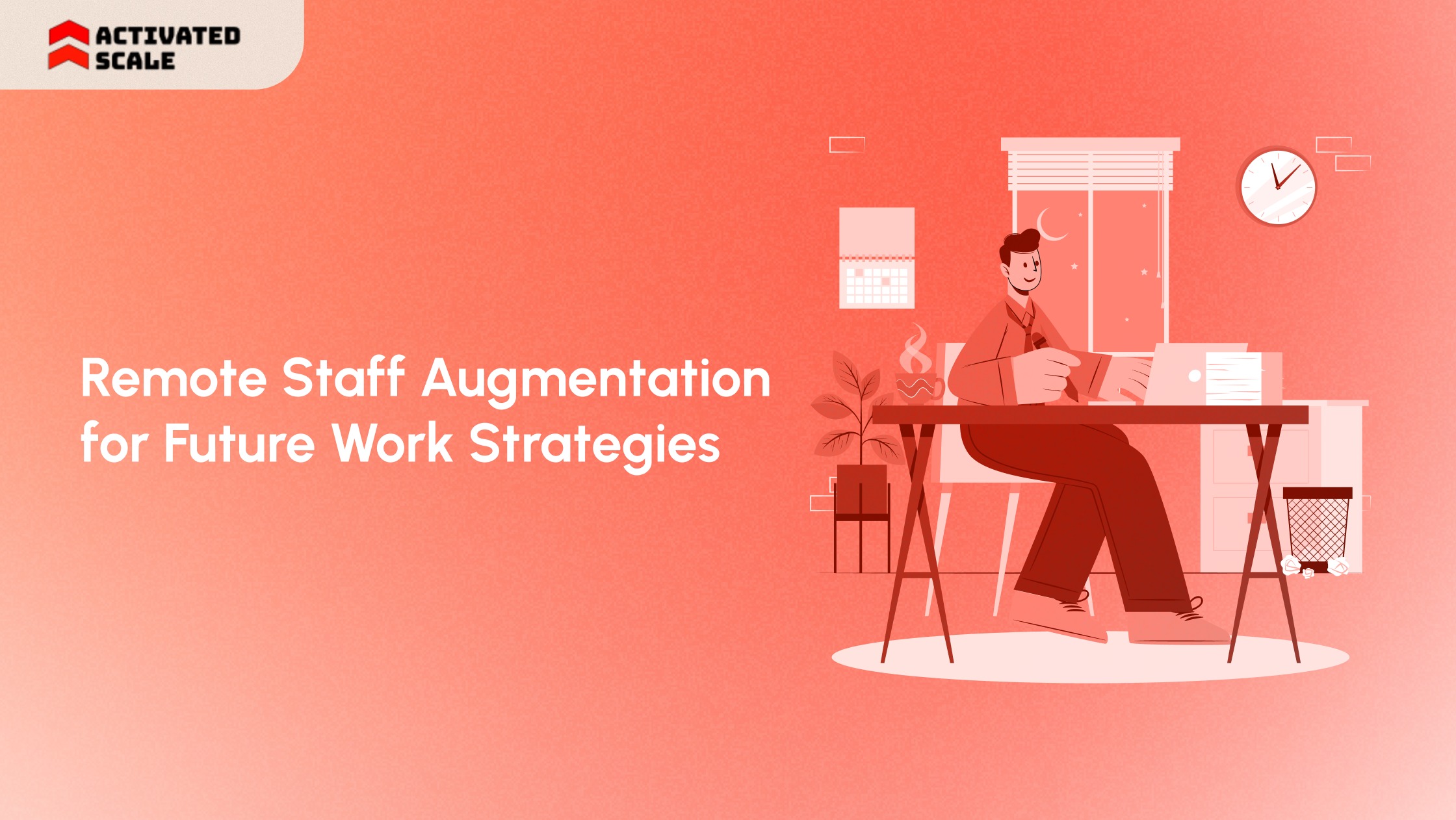Sales Development Representatives (SDRs) play a crucial role in generating leads and driving sales for companies. Finding the best SDRs for your organization requires a thoughtful and strategic approach. In this article, we will explore the key responsibilities and essential skills of an SDR, discuss the importance of hiring the right candidate, and provide guidance on identifying your ideal SDR candidate.
Understanding the Role of a Sales Development Representative
The role of a Sales Development Representative (SDR) is crucial in the sales process of any organization. SDRs play a vital role in identifying and qualifying potential customers for the sales team. They act as the frontline of the sales process, responsible for prospecting, cold-calling, and setting up meetings with potential clients. By focusing on lead generation, SDRs ensure a continuous flow of qualified leads for the sales team to convert into customers, ultimately driving revenue and business growth.
SDRs are often seen as the driving force behind the sales pipeline. They work tirelessly to fill the top of the funnel with high-quality leads, paving the way for the sales team to close deals successfully. Their ability to identify promising opportunities and engage with prospects sets the foundation for a strong sales strategy.
Key Responsibilities of an SDR
SDRs play a multifaceted role in the sales process, with key responsibilities that include:
- Prospecting and researching potential leads: SDRs conduct thorough research to identify potential customers who align with the company's target market and ideal customer profile.
- Engaging with prospects through various channels: SDRs leverage multiple communication channels such as phone calls, emails, and social media to initiate conversations with potential leads.
- Qualifying leads based on predefined criteria: SDRs evaluate leads based on specific criteria to determine their likelihood of becoming customers, ensuring that the sales team focuses on high-potential opportunities.
- Scheduling and conducting discovery calls or meetings: SDRs set up initial meetings between potential customers and the sales team, laying the groundwork for further discussions and negotiations.
These responsibilities require a combination of strategic thinking, communication skills, and a deep understanding of the sales process.
Essential Skills for an SDR
Successful SDRs possess a diverse set of skills that enable them to excel in their role and drive results. Some of the essential skills for an SDR include:
- Excellent communication and listening skills: SDRs must effectively communicate the value proposition of the company and actively listen to the needs and concerns of potential customers.
- Adept at building relationships and rapport: Building trust and rapport with prospects is essential for SDRs to nurture leads and move them through the sales funnel.
- Ability to handle objections and rejection: SDRs encounter objections and rejections regularly, requiring them to remain resilient and persistent in their approach.
- Strong organizational and time management skills: Managing a high volume of leads and activities demands strong organizational skills to prioritize tasks effectively and maximize productivity.
Overall, the role of an SDR is dynamic and challenging, requiring individuals with a unique blend of skills and qualities to succeed in driving business growth and sales success.
The Importance of Hiring the Right SDR
Hiring the right SDR can have a significant impact on both sales and revenue. A top-performing SDR can effectively generate and qualify leads, leading to higher conversion rates and ultimately, increased revenue for the company.
When looking for the right Sales Development Representative (SDR), it is crucial to consider not only their experience and skills but also their cultural fit within the organization. A well-aligned SDR will not only excel in their role but also contribute positively to the overall team dynamics and company culture.
Impact on Sales and Revenue
An experienced and skilled SDR can efficiently identify and qualify leads, ensuring that only the most promising prospects are passed on to the sales team. This reduces the time spent by the sales team on unqualified leads, allowing them to focus on closing deals and generating revenue.
Moreover, a top-tier SDR can also provide valuable insights and feedback to the marketing team based on their interactions with leads. This feedback loop can help in refining the lead generation process, ensuring a continuous improvement in targeting the right audience and maximizing sales opportunities.
Influence on Team Dynamics
The presence of a high-performing SDR can motivate the entire sales team. Their success becomes a source of inspiration and sets a standard for others to strive towards. Additionally, a well-integrated SDR can improve collaboration and communication between the sales and marketing departments, leading to a more cohesive team environment.
Furthermore, a skilled SDR can act as a bridge between the sales and product teams, providing valuable customer insights and feedback that can be instrumental in refining product offerings and aligning them with market demands. This cross-functional collaboration can lead to a more customer-centric approach, ultimately driving higher sales and revenue for the company.
Identifying Your Ideal SDR Candidate
Finding the ideal candidate for the Sales Development Representative (SDR) role is a crucial step in building a successful sales team. It requires a comprehensive understanding of your company's unique needs and the ability to set clear expectations for the role.
When defining your company's needs for an SDR, it's essential to consider a range of factors beyond just basic qualifications. Take into account the specific nuances of your industry, the characteristics of your target market, and the intricacies of your sales strategy. By delving deep into these details, you can pinpoint the qualities and skills that will truly drive success in the role.
Defining Your Company's Needs
Before embarking on the hiring process, invest time in clearly outlining the attributes you seek in an SDR. Look for candidates who not only possess relevant experience but also demonstrate a genuine passion for the industry and a keen understanding of your company's unique value proposition. By aligning these criteria with your hiring strategy, you can identify individuals who are not just capable but also culturally aligned with your organization.
Moreover, consider the evolving landscape of sales technologies and methodologies. An ideal SDR candidate should not only be proficient in traditional sales techniques but also adaptable to leveraging cutting-edge tools and strategies to drive results in a competitive market.
Setting the Right Expectations
Once you have a clear picture of the ideal SDR profile for your company, it's crucial to establish transparent expectations for the role. Clearly outline the goals, targets, and key performance indicators that will guide the success of an SDR in your organization. By providing a roadmap for advancement and success, you can attract candidates who are not only qualified but also motivated to exceed expectations and contribute significantly to your sales team's growth.
The Hiring Process for SDR's
Once you have a clear idea of the ideal SDR candidate, it's time to start the hiring process. Crafting a compelling job description and utilizing effective interview techniques will help you identify the best candidates.
When embarking on the hiring journey for Sales Development Representatives (SDRs), it is crucial to not only focus on the technical skills and qualifications but also on the candidate's soft skills and cultural fit within your organization. A successful SDR not only possesses the ability to navigate complex sales processes but also exhibits strong communication skills and a resilient attitude towards rejection.
Crafting the Perfect Job Description
Your job description should accurately reflect the responsibilities and expectations of the role. Highlight the key skills and qualifications required, as well as any specific industry knowledge or experience that would be beneficial. Be sure to emphasize the growth opportunities and career progression within your company.
In addition to outlining the day-to-day tasks of an SDR, consider incorporating information about your company culture and values into the job description. Potential candidates are not just looking for a job; they are seeking a workplace where they can thrive and grow professionally. By painting a vivid picture of what it's like to be part of your team, you can attract candidates who resonate with your company's ethos.
Effective Interview Techniques
During the interview process, go beyond the resume and ask relevant behavioral and situational questions to assess the candidate's skills and compatibility with your team. Arrange interviews with multiple stakeholders, including sales managers and team members, to gather different perspectives and ensure a well-rounded evaluation.
Consider incorporating role-playing exercises or mock sales calls into the interview process to gauge the candidate's ability to think on their feet and handle objections effectively. Observing how a candidate approaches challenging scenarios in real-time can provide valuable insights into their problem-solving skills and sales acumen.
Training and Onboarding Your New SDR
Once you have found the perfect SDR candidate, a solid onboarding program and continuous training are essential for their success and long-term growth within your company.
Importance of a Solid Onboarding Program
A well-designed onboarding program ensures that your new SDR quickly understands your company's culture, products, and processes. Provide comprehensive training on the tools and technologies they will be using, as well as guidance on sales strategies and best practices. Assign them a mentor who can support their learning and development.
Continuous Training and Development
Investing in the continuous training and development of your SDR team is crucial for maintaining their effectiveness and motivation. Provide ongoing coaching, regular feedback, and opportunities for professional growth. Encourage participation in industry conferences, webinars, and training programs to keep them up-to-date with the latest trends and techniques in sales development.
In conclusion, finding the best SDRs for your organization requires a well-defined hiring process and a thorough understanding of the role and its impact on sales and revenue. By identifying your company's needs, setting the right expectations, and utilizing effective interview techniques, you can attract, hire, and onboard top-performing SDRs who will contribute to the success of your sales team and drive business growth.
The Ultimate Guide to Hiring a Salesperson!
Get the step-by-step guide to hiring, onboarding, and ensuring success!
_edi.png)




